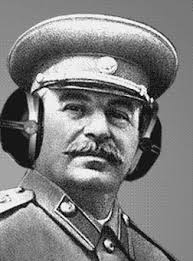When I was little I went to school and I learned what’s mine and what’s yours. And when all had been learned, it seemed to me that wasn’t all. For I had no breakfast myself, but others they had plenty to eat, And thus in the end I did learn why they call him the class enemy. And I learned why and how come there’s a rift throughout this world. And it stays between us as rain falls down from the sky to the earth.
And they told me: if I am good, then I’ll soon be just like them. But I thought: If I’m their sheep now, a butcher I’ll never become. And I saw that some among us took and swallowed their bait. And when theirs was the lot that was mine and yours, they wondered at their fate. As for me, I wasn’t astonished, I’d realized it early on: The rain flows downward in torrents and doesn’t flow skyward at all.
I heard the drums beat in nineteen-fourteen and all of them spoke as one: “Now’s the time to be waging wars for a little place in the sun.” And many hoarse voices promised us heaven and earth in good time. And fat-bellied bigwigs shouted: “Don’t give up the fight now!” And we thought: it’s a matter of hours, then we’ll have this and that. But the rain once more fell downwards, and for four years we bit the dust.
And suddenly they told people: “We’re going to have a Republic! And in it all men will be equal, no matter if they’re thin or fat.” And those feeble from hunger and ill were never as hopeful as then. But those who’d eaten their fill, were full of hope like them. And I said, “something’s not right here” and was filled with dismal doubts: It doesn’t add up that the rain is supposed to flow up, not down.
They gave us ballots for voting, we turned our weapons in. They gave us words of promise, and our rifles we gave them. And they said: “those who understand it, they will now help us and assist.” We should just get to work and they would take care of the rest. I let them move me again and stayed quiet as they had asked and thought: that’s so nice of the rain that it wants to flow upwards now.
Not much later I heard it said that now all is put right and done. If the lesser evil we now supported, The greater good would soon come. And we swallowed that cleric Brüning, as Papen filled us with concern. And we swallowed the Junker Papen so it wouldn’t be Schleicher’s turn. And the cleric gave it to the Junker, and the Junker to the general. And the rain was falling downward, and the flood was biblical.
While our ballots we were clutching, they closed down factories. While outside the dole office sleeping, we left them all in peace. We heard such promising phrases: “Keep calm! Be patient and wait! After a big downturn comes an even bigger boom!” And so I told my colleagues: “Thus speaks the class enemy! When he speaks of a good time, it’s his time that he means.” Rain can’t suddenly fall up, being benevolently inclined, but what it can do is: it can stop once the sun comes out and shines.
One day I saw them marching, with new flags, intrepidly. And many among us saw and said: “There’s no more class enemy.” But I saw in their vanguard many a familiar face and I heard them once more, yelling in that old drill sergeant voice. Still, through the flags and the festivities, day and night the rain poured down. And those who could all feel it were those lying on the ground.
They diligently practiced shooting and spoke loudly of enemies. They pointed wildly across the border But who they meant was you and me. For us and they, we are foes and only one of us can win this war. For they live off of us and will die if we don’t slave for them anymore. And it is for that very reason you mustn’t let it astound if they throw themselves at us, like the rain does throw itself upon the ground.
Those of us who starved to death, It was in battle that they died. And for those who died in our midst, the word murder can be applied. The one who was taken by gunmen had not liked starving to death. The one whose jaw they kicked in had asked for a piece of bread. The one whom they promised the bread is now hunted as their prey. The one they bring in the coffin had dared words of truth to say. And all who believed when they said they were friend and not foe had thus also expected rain to fall up from below.
For we are class enemies, whatever they all may say: Those of us who didn’t dare to fight dared to starve another day. We’re class enemies, drummer! This can’t be covered up by your noise! Factory owner, general and junker — our enemy, that’s you! None of this will be made right, and none of it repaired! The rain doesn’t fall to the sky, we don’t ask it to rise through air.
Your painter may ceaselessly paint, this rift won’t be painted over! One must yield and the other one stays, it is either me or you. And whatever I have yet to learn, these are my ABCs: Nothing I’ll ever have in common with the cause of the class enemy. No word you will ever find that can unite both you and me! The rain falls down from on high. And you are my class enemy.
[Original German lyrics by Bertolt Brecht]
"Das Lied vom Klassenfeind”, the Song of the Class Enemy, was written by Bertolt Brecht in 1930 (then set to music by Rolf Lukowksy and sung by Ernst Busch).
Bertolt Brecht was a German Marxist playwright and poet who devoted much of his work to opposing Nazism. The Song of the Class Enemy was written in that context.
Additional historical notes:
Brüning, Papen and Schleicher were chancellors of Weimar Germany in the period leading up to the Nazi takeover.
The Junkers were the old military aristocracy of Prussia and the German Empire.
The lines about the “drummer” and the “painter” in the second half of the song are references to Goebbels and Hitler.
A YouTube link was detected in your post. Here are links to the same video on Invidious, which is a YouTube frontend that protects your privacy:



